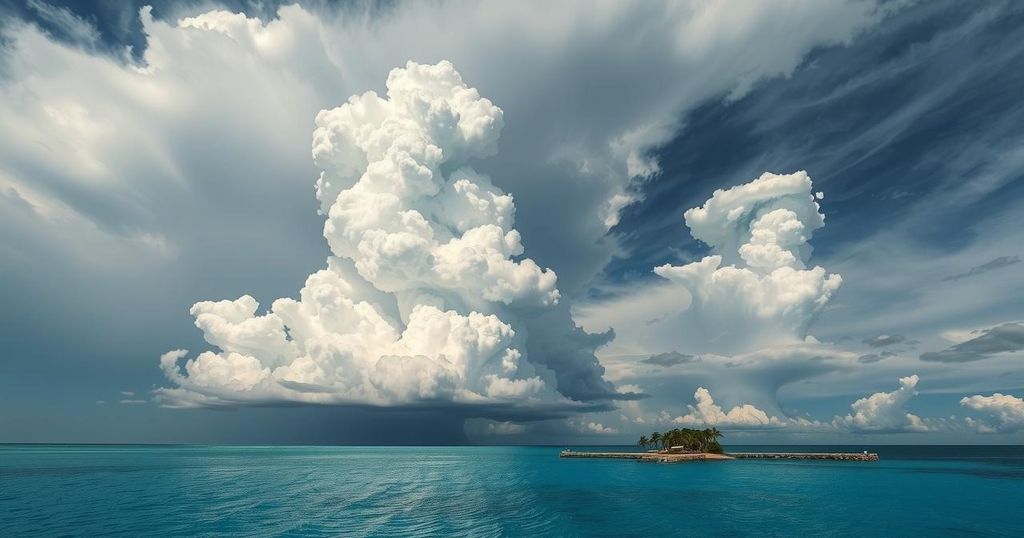Cyclone Chido Threatens Indian Ocean Islands and Mozambique with Devastation

Cyclone Chido is approaching Comoros, Madagascar, and Mayotte, causing emergency alerts and evacuations. With wind speeds reaching 200 kph, Mozambique predicts over 2 million residents could be affected, prompting extensive safety measures and international aid efforts. The cyclone’s imminent impact highlights the increasing severity of storms in the region due to climate change.
The Indian Ocean islands of Comoros, Madagascar, and Mayotte are preparing for the impending impact of Cyclone Chido as it approaches Africa’s eastern coastline. The cyclone, which is anticipated to reach the islands early Saturday, has already prompted Comoros to close schools. Madagascar is on alert, with evacuations occurring in the northern regions that are predicted to experience the brunt of the storm. The French territory of Mayotte has also been placed under a red alert by the national weather service, indicating serious threat levels.
As it moves closer to the mainland, Mozambique has issued a red alert for the provinces of Cabo Delgado and Nampula, estimating that over 2 million individuals may be affected when Chido makes landfall, projected for early Sunday. Authorities report wind speeds could reach 200 kph (124 mph). The Mozambique National Emergency Operations Center stated, “We believe that we can initially start working with an estimate of around 2.5 million people in the provinces of Cabo Delgado and Nampula who may be affected and will need to be rescued.”
Emergency services in Madagascar are mobilizing, having sent warnings via cell phone alerts and radio broadcasts, urging residents to prepare for Chido’s impact. In total, approximately 20,000 individuals in Madagascar’s northern region are at risk of significant devastation. To mitigate the effects of the cyclone, food and emergency supplies have been delivered to the area since earlier in the week.
In preparation for potential damage in Mayotte, the French government is deploying around 110 personnel, including relief workers and firefighters, along with three tons of emergency supplies. This includes specialists trained in rescue operations to assist in the event of major destruction. Cyclone season in this region, which takes place from December through March, has seen an increase in severe storms partly attributed to climate change.
Risk management firm Crisis24 has warned that Cyclone Chido may trigger devastating flooding and landslides, creating stagnant water conditions prone to breeding waterborne diseases such as cholera, alongside other illnesses like dengue fever and malaria. This follows historical patterns noted after previous cyclones, including Cyclone Idai in 2019, which had catastrophic repercussions in Mozambique, Malawi, and Zimbabwe, claiming over 1,300 lives.
Cyclone Chido is a significant weather event in the Indian Ocean region, which experiences a cyclone season from December to March. The frequency and intensity of such storms have reportedly increased due to the impacts of climate change. Communities in the islands of Comoros, Madagascar, Mayotte, and parts of mainland Africa are often vulnerable to these storms, which can lead to widespread damage, flooding, and disease outbreaks such as cholera and malaria, exacerbating existing humanitarian challenges.
In summary, Cyclone Chido poses a critical threat to the islands of Comoros, Madagascar, and Mayotte, as well as coastal Mozambique. Authorities in affected regions have implemented various emergency measures to protect lives and mitigate damage. The powerful storm, marked by potentially devastating winds, emphasizes the growing dangers associated with cyclones in the Indian Ocean and the need for effective disaster preparedness and response strategies.
Original Source: abcnews.go.com






